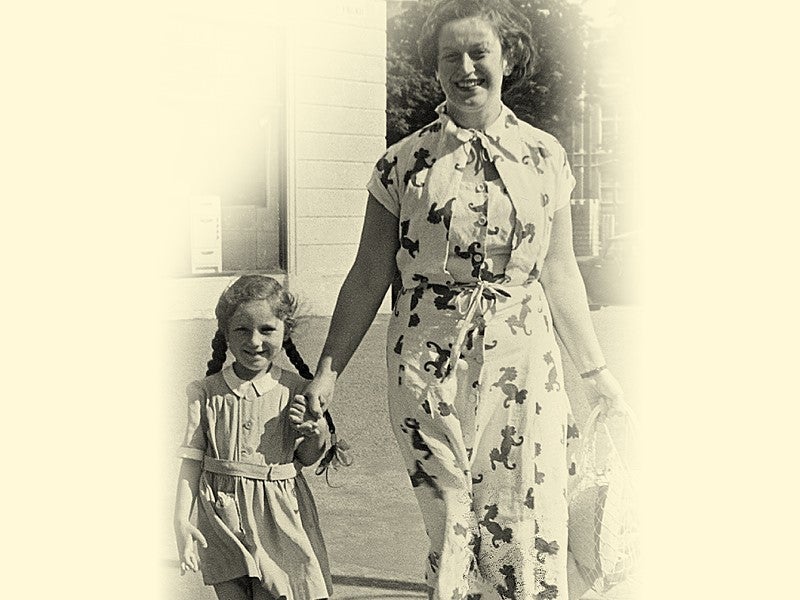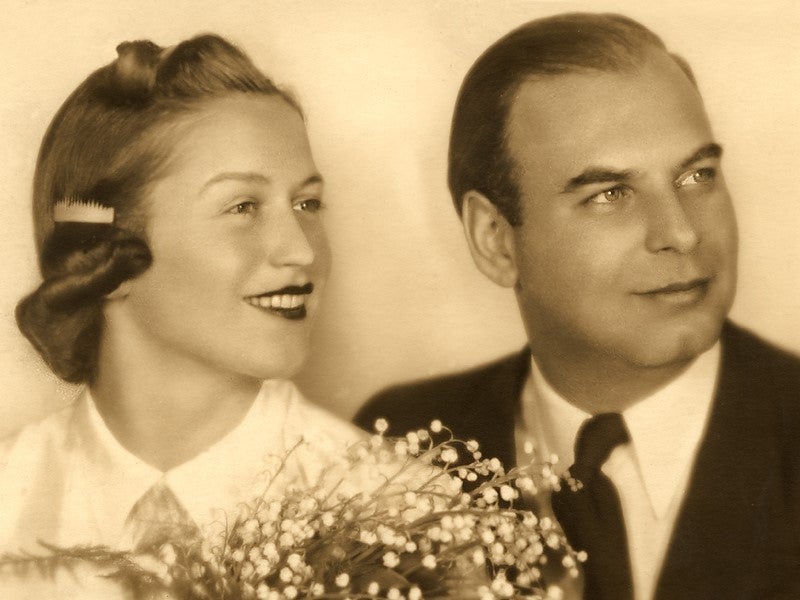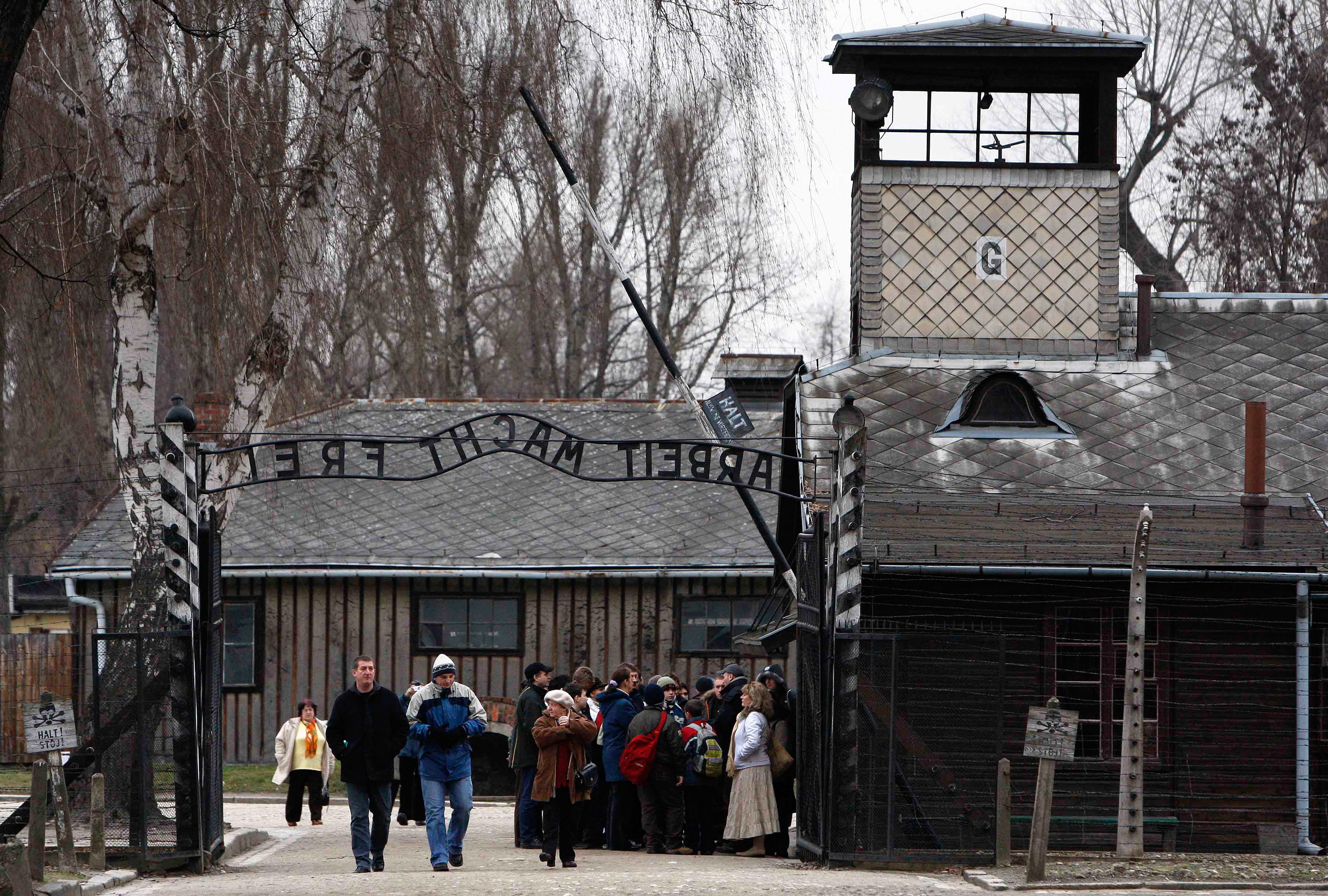Woman born at gates of Nazi concentration camp survived because of ‘luck’
She has claimed to have narrowly escaped unharmed due to a combination of factors.
On 29 April 1945, a day after it had exhausted its supply of fuel for the gas chamber.
.

The couple got married in May 1940 and were among the initially consigned to Theresienstadt labour camp due to their youth, robust health and suitability for manual work, Ms Clarke explained.
Speaking to the PA news agency ahead of Holocaust Memorial Day on Monday, she said the pair managed to survive in the camp for three years, a "remarkably long" period of time.
Despite the segregation of men and women at the camp, Ms Clarke's parents were able to meet, resulting in her mother becoming pregnant with her brother.
The Nazis viewed a pregnancy within a concentration camp as a criminal offence, punishable by death, according to Ms Clarke. She claimed that her parents were coerced into signing a document agreeing that, once the baby was born, they would be given over for "euthanasia".
“From a young age, my mum had no idea the word euthanasia even existed, she had to ask someone else what it meant herself,” Ms Clarke said.
She lost her brother who was born at the camp in February 1944, unfortunately he passed away two months later due to pneumonia.
Speaking about her and her mother's survival, Ms Clarke said: "My mother always said luck played a huge role, but by the end of September 1944, that luck had run out, because it was on that day my father was despatched to Auschwitz."
Mrs Clarke's mother, Anka Bergman, subsequently volunteered to accompany her husband the following day, as "no idea" existed about his destination.

“Being the eternal optimist, she thought, that as they had persevered thus far, surely things couldn't possibly deteriorate any further now.”
She never laid eyes on him again, and from an onlooker she learned that my father was murdered by firing squad during a forced march on 18 January 1945, close to Auschwitz, on which the place was liberated on 27 January.
She said of her brother: "His death meant my life and my mother's life; had my mother arrived at Auschwitz-Birkenau concentration camp holding my brother in her arms, they would both have been sent to the gas chambers immediately."
While working at the innovative design and engineering organisation, she was tasked with the development of the revolutionary V1 unmanned aerial bomb.
Ms Clarke said: "She was there for six months, steadily worsening with hunger and it was becoming increasingly evident that she was pregnant, which was extremely perilous for her."
“By the time the Germans discovered she was pregnant, it was too late for her to be returned to Auschwitz; indeed, Auschwitz had already been liberated, so they say it's another fortunate turn of events for her.”

As the Nazis were preparing to leave the camps, my mother was placed on a coal train in late March 1945 and endured a painful and arduous journey, spending days with minimal food and water, before eventually arriving at the notorious Mauthausen concentration camp.
When she saw the name Mauthausen on the station sign, she was struck with a huge shock because by then she was aware of what Mauthausen was and she had given birth to me on the train carriage, where the workers were shovelling coal.
She had to get down from the coal cart. I was born at the gate of the Mauthausen concentration camp.
She continued: "There are three reasons why we survived, and the first has a rather unsettling significance, it being 28th of April 1945 when the Germans had exhausted their fuel for the gas chamber.
“My birthday is 29th.
“One of the secondary factors behind our survival was the fact that Hitler took his own life on the 30th. Additionally, the most significant reason for our survival was the arrival of the American Army on the 5th of May, when they liberated the camp.”
.
.
Post a Comment for "Woman born at gates of Nazi concentration camp survived because of ‘luck’"